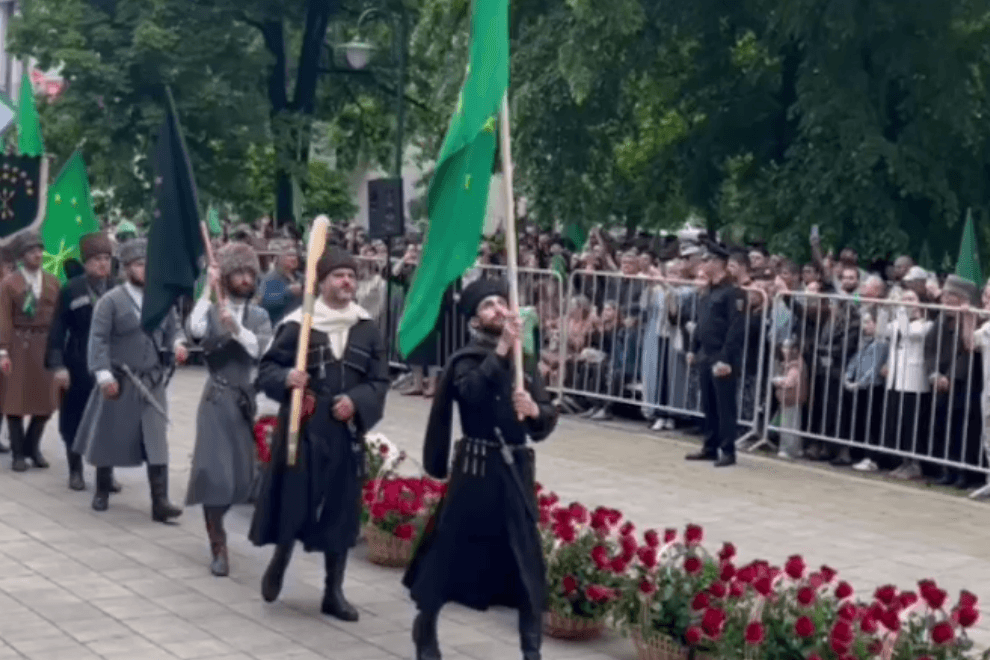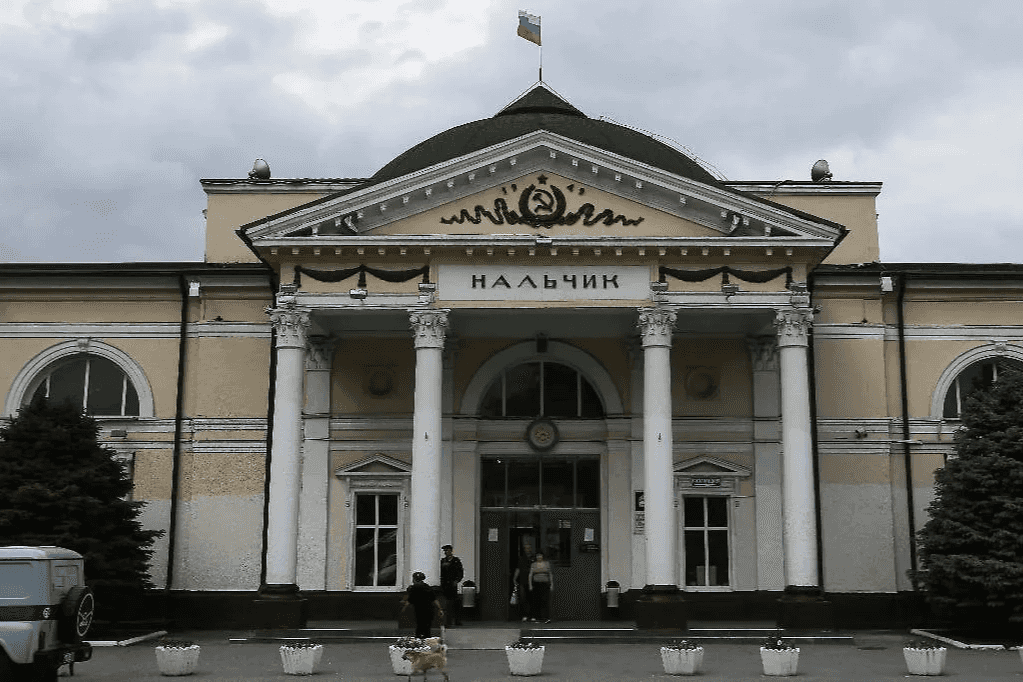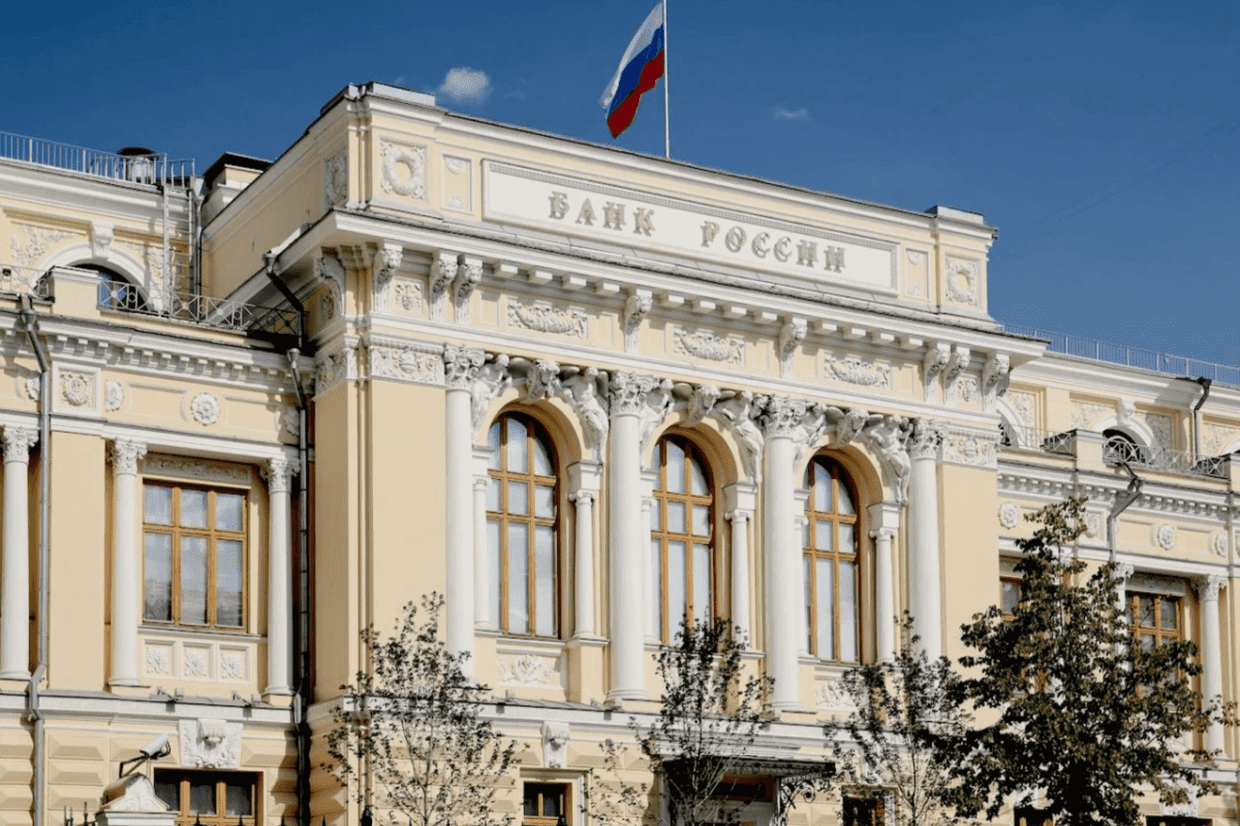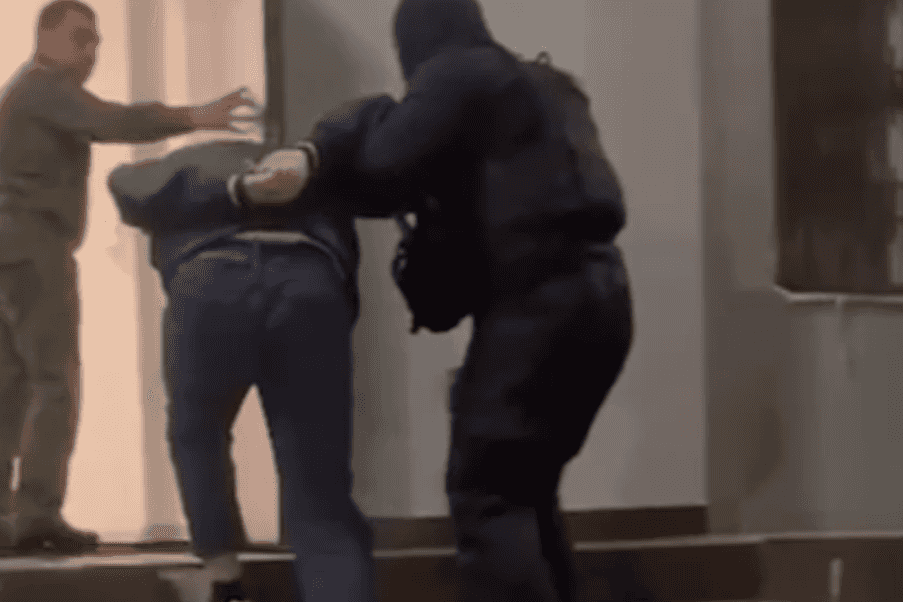
At least eight people who took part in marches commemorating the Circassian Genocide in the Russian republics of Kabarda–Balkaria and Adygea have been arrested for participating in an ‘unauthorised demonstration’.
Eight people were detained on 21 May in Nalchik, the capital of Kabarda–Balkaria, while reports have also emerged that unknown number of people were detained in Maykop, Adygea.
They were arrested as Circassians commemorated the 161st anniversary of the genocide and the end of Russia’s conquest of the North Caucasus.
Human rights activist Olga Begretova told OVD-Info, an organisation tracking arrests of protesters in Russia, that the Nalchik City Court sentenced most of the eight detained there to sentences from three to 10 days, while one detainee was fined ₽10,000 ($125).

On 22 May, the court’s website listed seven people detained on charges of obstructing traffic by holding an unauthorised demonstration. Among those detained were Kazbek Mamikov, Khusen Gugov, Idar Tsipinov, Euaz Zuber, Bisher Yerokov, Beslan Gedgafov, and Timur Nukhushev. The results of their trials have not been made public.
On 25 May, the court website registered the case of an additional detainee, Marina Kalmykova under the same charges. She was given three days of detention.
As reported by local media Gazeta Yuga, one of the rulings stated that the march disrupted traffic and had not been authorised by the Ministry of Nationalities’ Affairs or the Nalchik administration.
Russian rights group Memorial noted that the demonstration involved at least 2,000 people, including representatives of the Circassian diaspora from Turkey, Syria, the USA, as well as civil society organisations from North Ossetia, Ingushetia, and Daghestan. According to the group, police attempted to move the procession from the road to the pavement, but participants continued along Lenin Avenue. Police accompanied the march and did not use force to disperse it.
One participant told Russian independent media outlet Caucasian Knot that on the eve of the march, officers from the Centre for Combating Extremism had called activists, suggesting they come to the department to receive warnings about the inadmissibility of unlawful actions.
On 24 May, local Circassian community figures sent an appeal to the head of Kabarda–Balkaria, Kazbek Kokov, as well as other senior local officials and members of the Russian senate. They appealed for the release of the detainees, emphasising that they were not organisers of the march and insisting that participating in commemorative events did not contravene the law.
In their statement, the activists pointed out that thousands of participants in the march could potentially face charges of participating in an unauthorised demonstration. They stated that the republic’s authorities routinely refused permission for such events, citing terror threats, tense international circumstances, and non-compliance with formal notification requirements. The statement also noted that the local authorities had attempted to ban the march in 2023, but that residents still held the event.
On 25 May, the Telegram channel Republic of Circassia reported that participants of a similar commemorative event in Maykop, the capital of the Republic of Adygea, had also been detained.
According to the channel, the event did not involve a march or rally and was essentially just a commemorative photo. All participants were reportedly released, but an unnamed subscriber to the channel reported that, following the intervention of a senior law enforcement official, adult participants were taken back to a police station where charges were drawn up against them.
As of Monday morning, Adygea’s Interior Ministry had yet to publish any official information regarding the reported detentions.
Russia’s 19th century conquest of the North Caucasus was a prolonged military conflict between the Russian Empire and the various indigenous peoples of the region. Its end saw the eventual subjugation of the North Caucasus by the Russian Empire, the destruction of many local communities, and a series of forced displacements.
The Circassian Genocide was the culmination of the conquest, with hundreds of thousands of Circassians being killed or driven from their ancestral homelands to the Ottoman Empire.
Survivors of the genocide were forcibly resettled by the Ottoman Empire in modern-day Turkey, Syria, and Jordan.
The genocide is annually commemorated on 21 May in the North Caucasus and the diaspora. In Russia, such commemorations have often been met with varying levels of official resistance, including restrictions on public gatherings. The events typically include processions, laying of wreaths at memorials dedicated to the end of the conquest, traditional dances, and moments of silence to honour those killed.
In recent years, the Circassian national movement has sought greater recognition of the historical injustice suffered by their people, including calls for official acknowledgement of the genocide. These efforts have occasionally been met with legal and administrative obstacles, such as refusals to approve public events or the detention of participants.











